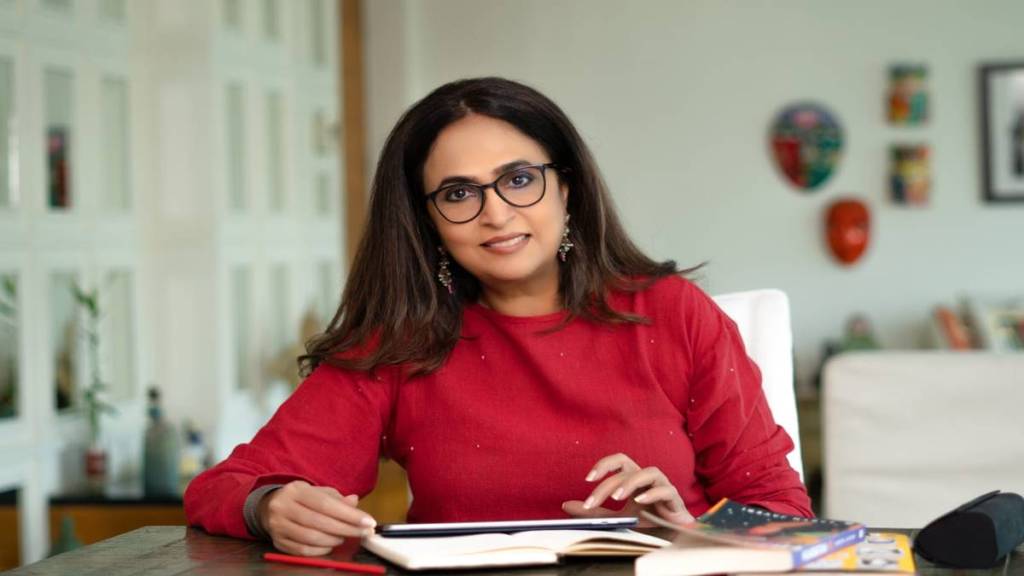By Shailja Kejriwal
Writer Philip Pullman’s belief that stories are what we need most in the world after nourishment, shelter, and companionship, resonates with me deeply because I feel, without stories, the human experience cannot be fully defined or understood. One of my favorite writers, Neil Gaiman put this thought in words perfectly when he said that stories, we read at a certain age never quite leave us. And that we may forget who wrote them, what the story was called, or precisely what happened, but if a story touches us, it will stay with us.
I can vouch for this because the stories I read as a child or heard from my grandmother have stayed with me to date. They paved the way for me to become a seeker of diverse tales representing the endless variegation of human existence. From mythological tales, I transitioned to Enid Blyton, Hans Christian Anderson, Greek Tragedy, Sanskrit drama, Shakespeare, Moliere, and Racine, to the modern writers Tolstoy, Kafka, and subcontinent literature and classic Indian plays.
Stories led me to become a student of Comparative Literature and to a career where the curation of literary masterpieces and a celebration of new-age raconteurs became a passion. Be it Star Bestsellers or the Zindagi channel, the focus was always on storytelling with a difference. Zee Theatre too was born out of the need to not just tell stories but to archive and preserve them for those who have either not discovered their own literary heritage or want to rediscover it.
Today when people turn on their television sets to watch Manoj Pahwa read ‘Toba Tek Singh’ by Manto or to rewatch ‘Sir Sir Sarla’, writer, director, and actor Makrand Deshpande’s poignant play about love and loss, it shows that shift is beginning to happen. This does not mean that there is a revolution afoot and soon only theatre will dominate the small screen but this is undoubtedly a revivalist effort that is mainstreaming off-beat narratives. It showcases trained actors, many of whom have found a strong foothold in the OTT and cinematic space.
Most importantly, it is bringing into focus playwrights and writers from the subcontinent ranging from Tagore, Saadat Hasan Manto, Ismat Chughtai, Amrita Pritam, Hari Shankar Parsai, Munshi Premchand, Rajinder Singh Bedi, Gulzar, Quratulain Hyder, Vijay Tendulkar, Mohan Rakesh, and Mahesh Dattani among many others. Of course, theatre would have survived without this digital intervention because it is the oldest narrative art form and continues to be supported by loyal aficionados but digitisation not only expands its reach but also brings it closer to those who cannot access it or have never discovered its richness.
Many young members of the audience are surprised by how contemporary and far-sighted Manto was, how the ideas that feminism is espousing today existed in the stories of Ismat Chughtai and Amrita Pritam and how insightful Vijay Tendulkar was when he wrote about social and cultural faultlines as well as human frailties. What literature also does is melt rigid ideas. It opens hearts and minds and builds bridges and makes us realise that fundamental human emotions and experiences are similar rather than disparate.
During the pandemic, the digital theatre became a space for practitioners to stay in touch with their craft and audiences. When theatres shut down, we saw a huge surge in audience numbers. More and more people tuned into teleplays and discovered how without even the bells and whistles of big budget shows and films, theatre with only a few props, not only offer entertainment but also less explored, fearlessly told stories, an uncompromised level of artistry, and pure creative passion. It is fulfilling, to say the least, that now countless people around the world can watch some of the greatest stories ever told right at home.
This experience is not meant to take away from the popularity of live theatre but to add to it as many people who have discovered digital narratives in fact make the effort to go on to catch live performances. Live theatre has matchless energy and vibrancy and capturing it on film is a challenging yet rewarding experience.
This journey of curation started in 2015 and has faced many challenges initially many playwrights and theatre exponents doubted if teleplays would be able to do justice to the integrity of live plays but today, some of the most respected practitioners are helping us to preserve a legacy that will continue to inform, enlighten and inspire future generations and take them to different epochs. As JK Rowling put it, “There’s always room for a story that can transport people to another place.”
(Shailja Kejriwal is spearheading ZEE Special Projects – ZEE’s content studio. She is known for launching channels like Zindagi and revamping the Theatre business in India with Zee Theatre – bringing theatre to TV Screens.)


